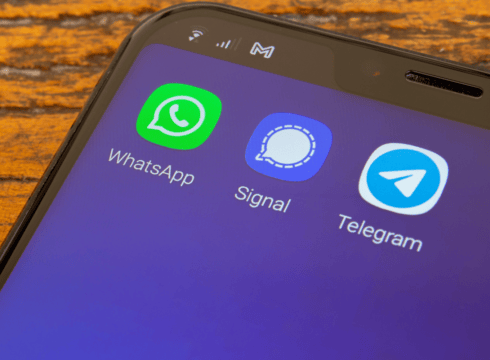TRAI has released the much-awaited consultation paper on regulating OTT communication apps and invited feedback from all stakeholders
The paper explores themes such as identification of a regulatory mechanism and the examination of issues related to selective banning of apps like WhatsApp and Telegram
In 2018, TRAI floated a similar paper but shelved it later, citing adverse impact on the industry
Inc42 Daily Brief
Stay Ahead With Daily News & Analysis on India’s Tech & Startup Economy
The Telecom Regulatory Authority of India (TRAI) on Friday (July 7) released the much-awaited consultation paper on regulating over-the-top (OTT) communication apps in the country.
The paper broadly covers two aspects – identification of a regulatory mechanism to cover the OTT communication apps and the examination of issues related to selective banning of such apps.
The telecom regulator has invited feedback from stakeholders on the consultation paper till August 18.
The major takeaways of the paper include exploration of themes such as the need for selective banning of OTT communication apps, such as Meta-owned WhatsApp, Telegram and Google Meet, as well as lawful interception of messages by authorities. TRAI has also sought comments on privacy issues and quality of services for these apps.
The paper has sought responses from users on the definition of OTT services in general, and OTT communication services in particular. It has also asked the respondents to suggest classification of OTT messaging apps, and if there is any need to bring OTT services under the regulatory purview through new or existing laws.
TRAI also sought user feedback on various aspects of OTT communication vis-à-vis licensed telecommunication services in India:
- Regulatory aspects
- Economic aspects
- Security aspects
- Privacy aspects
- Safety aspects
- Quality of service aspects
- Consumer grievance redressal aspects
Besides, the paper has also asked if there is a need for a collaborative framework between OTT communication apps and licensed telecommunication service providers. It has further sought clarity on the potential challenges that can arise out of such a framework and its impact on net neutrality, consumer access and consumer choice.
On the question of selective banning of OTT apps, TRAI has sought solutions on mitigating potential technical challenges that can arise while implementing such a move in ‘specific regions of the country for a specific period’.
“Whether there is a need to put in place a regulatory framework for selective banning of OTT services under the Temporary Suspension of Telecom Services (Public Emergency or Public Safety) Rules, 2017 or any other law, in force?” asks the paper.
TRAI has also called on the general public to suggest which ‘classes of OTT services’ should be covered by a prospective law envisaging selective banning of OTT services in the country.
The Ghosts Of The Past
The consultation paper comes nearly a year after the union government began consultations on the process of regulating OTT communication apps. However, this is nothing new as TRAI has previously also floated a consultation paper to bring these apps under the ambit of existing regulations.
In 2018, TRAI issued a similar document to formulate a regulatory mechanism but shelved the proposal amid criticism from industry bodies such as IAMAI. However, back then, TRAI said that it would eventually bring a law at an ‘appropriate time’ to regulate the space.
After being in the closet for years now, the matter gathered steam yet again last year as the government reignited the debate on the matter. The pitch for regulation of such apps has been led by telecom operators who believe that they spend crores of rupees on building networks and acquiring licences, while OTT apps are not bound by such rules.
The telcos also allege that the emergence of OTT apps have hit their revenues, as before the entry of Reliance Jio in the telecom space in 2016, calls and messaging were a big source of revenue for these companies. OTT communication apps simply ride on telcos’ internet services to offer free calls and messaging services, which were earlier chargeable by the operators.
Besides this, the government has also been concerned by the deployment of encryption norms at most of these OTT apps which makes it difficult for authorities to trace the end user in criminal cases and national security threats, among others. The Centre has also been looking to tighten the noose around these platforms for their non-compliance with its diktats.
The move could have a direct impact on companies such as WhatsApp and Google which count India as one of their biggest digital markets. A licensing regime could mean additional costs and compliance for these players, which can force them to pass on the costs to the price-sensitive Indian customers.
The paper sets the stage for another standoff between the Indian government and foreign-owned big tech giants. Whether this consultation paper goes through or is shelved, like the previous instance, only time will tell.
{{#name}}{{name}}{{/name}}{{^name}}-{{/name}}
{{#description}}{{description}}...{{/description}}{{^description}}-{{/description}}
Note: We at Inc42 take our ethics very seriously. More information about it can be found here.


